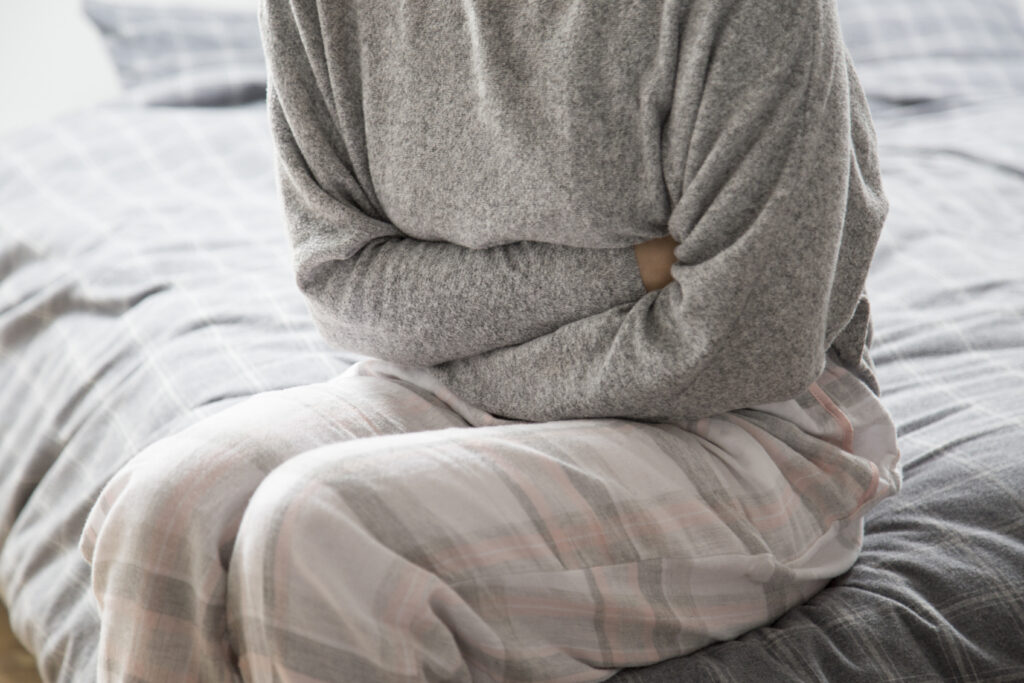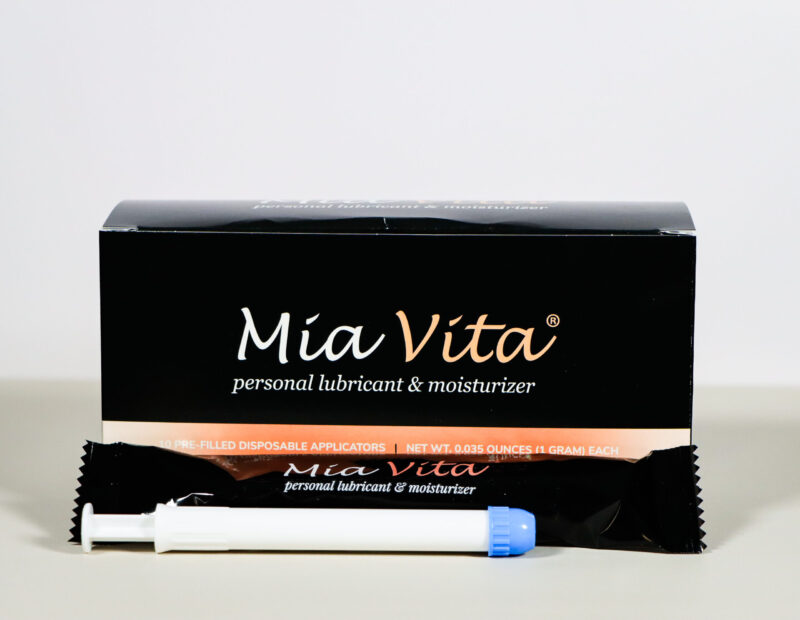A myriad of symptoms accompany the menopause transition, yet some are more comfortable to discuss than others. We tend to be most familiar with side effects like hot flashes and fatigue. And as unpleasant to experience as they are, there’s a host of menopause-related symptoms often left off the list: bowel problems. Yes, we’re talking about constipation, bloating, and your overall gut health.
Women’s hormones play significant roles in just about every bodily function, including how you digest and expel food. So, let’s shed some light on the ways you may experience bowel-related symptoms during the menopause transition and practical ways you can find relief.
How does menopause impact bowel movements?
Your gut contains its own microbiome of bacteria that work to maintain healthy digestion and motility (how food moves through your digestive system and out of the body). And like many conditions under the umbrella of women’s health, we’ve yet to determine the exact link between menopausal changes and gut health, including bowel problems.
We know that during perimenopause, a woman’s hormones, especially estrogen and progesterone, fluctuate and then decline. After a year of no period, a woman enters postmenopause. Yet hormones like estrogen play critical roles in helping maintain your gut health and function. So, what happens when they decline?
“Gut dysbiosis,” or imbalanced gut bacteria, can occur when you’re stressed, consume alcohol, or eat highly processed foods. It can also occur due to lower levels of key reproductive hormones. Researchers suspect that since a woman’s gut also helps “metabolize estrogens and other sex hormones,” lower reproductive hormone levels may lead to additional bowel-related symptoms.
For instance, constipation and bloating often occur at the start of a woman’s period when hormone levels are at their lowest. It stands to reason that during perimenopause—a time of great hormonal imbalance—your digestion can go a little haywire, too.
One study of note compared the number of gut bacteria species between premenopausal and postmenopausal women to men’s gut microbiomes. Interestingly, premenopausal women had significantly more diverse gut flora than men. Yet postmenopausal women had about the same number of gut bacteria types as men, confirming a connection between a woman’s gut microbiome, hormones, and bowel-related symptoms.
Bloating, constipation, and menopause: what’s the connection?
Here’s why these hormonal changes may leave you feeling more constipated and bloated as you go through perimenopause and enter postmenopause. Estrogen helps your muscles push food through your digestive system and determines how fast or slow the food moves. The less estrogen your body produces, the slower your muscles work and the slower food moves through your colon. Slower digestion can contribute to constipation and make it harder to do a bowel movement. Constipation refers to less than three bowel movements a week, though it differs from person to person.
What about bloating? Let’s go back to estrogen. Estrogen also helps produce stomach acid and bile, which break down food. When your body can’t break down food fast enough, it tends to sit in your stomach longer. Sometimes, this causes your stomach to swell from excess gas or fluids in your digestive system and can contribute to temporary weight gain, which often presents as bloating.
Can menopause cause IBS?
Twice as many women receive an IBS (irritable bowel syndrome) diagnosis as men. But what, if anything, does IBS have to do with the menopause transition? Not much, as it turns out. It’s not a temporary condition, like many digestive issues brought on by the menopause transition, but chronic.
However, due to a lack of research on the menopause transition and its relation to women’s gut health, there may be more to the story. For now, we know that perimenopause does not cause IBS. Some research studies confirm postmenopausal women with IBS experience more intense symptoms following the menopause transition, yet others report the opposite. Remember, women’s hormones and bodies uniquely respond to perimenopause and postmenopause; no two are the same.
Managing bowel problems through menopause
One of the best things you can do for your digestive system during perimenopause (and into postmenopause) is replenish your good gut bacteria. A high-quality probiotic, like the Mia Vita Women’s Probiotic, can deliver bacterial strains directly to your gut to help it maintain a healthy bacterial balance. You may find that bouts of constipation lessen and you experience less bloating with the assistance of a probiotic.
What you eat can also impact the severity of bowel problems during perimenopause and into postmenopause. To help balance your gut microbiome during the menopause transition, add plenty of fermented, probiotic-rich foods (like yogurt and sauerkraut) and fiber (like legumes and vegetables) to your daily meals. Probiotic foods introduce more healthy bacteria to your gut, and fiber contributes to more frequent, healthy bowel movements. Proper hydration and plenty of sleep also help your gut maintain healthy levels of good bacteria. However, if your gut health during perimenopause or postmenopause disrupts your daily life, make an appointment to see a healthcare provider for further support.
FemmePharma has been helping women navigate menopause for over two decades. No matter where you are in your journey, you deserve to have knowledgeable, intimate healthcare partners to help you feel your best. Explore our other articles, podcast episodes with women’s health experts, and products to ease your transition into menopause.



